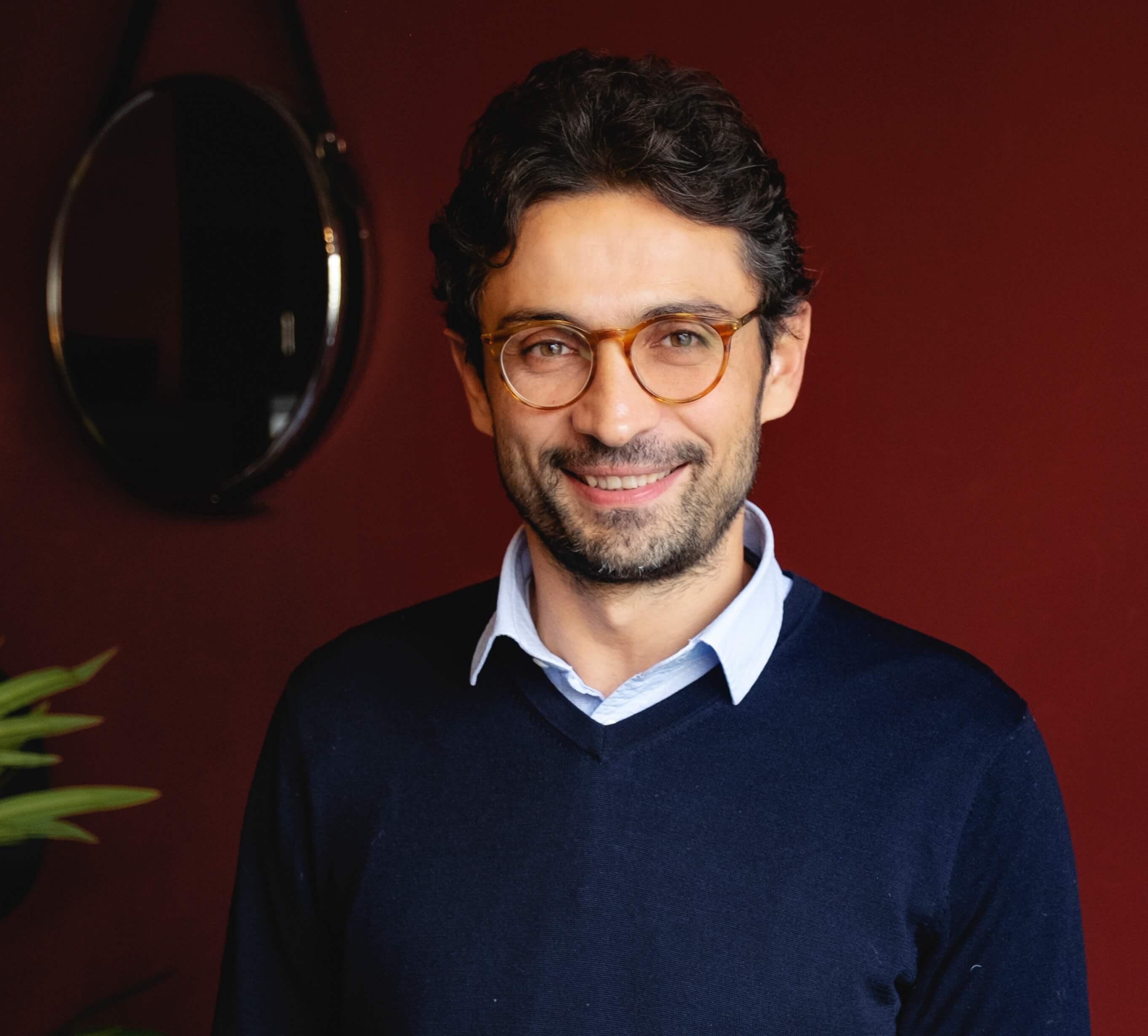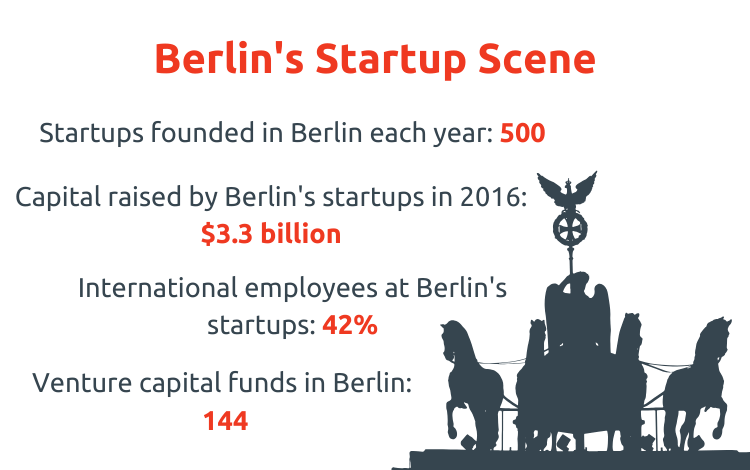
Looking for the best MBA in entrepreneurship? It’s time to consider Berlin.
Investment opportunities, a large pool of talent, and more—Berlin is an world-class city for innovation with a thriving startup ecosystem. If you’re looking for the best MBA for entrepreneurship, then Berlin should definitely be in your considerations.
If you want to study an MBA with a focus on entrepreneurship then it’s important to find a program offering opportunities to get first-hand experience within innovative new industries and opportunities to connect with individuals currently working on the challenges and opportunities they present.
As a result, location is vital. Does it offer access to a talented and skilled workforce? Are there plenty of investment opportunities? Is there an ecosystem that helps to nurture new businesses and their innovations?
All of these features can be found in Berlin. This is probably one of the reasons why Germany is such a popular study destination for MBAs.
One professional drawn to Berlin’s startup scene is Tomer Sabag. Tomer began his career with an engineering degree, and found work in research and development for Atrica, a tech startup in Israel.
Hoping to expand his business knowledge and make a greater impact in the startup world, he decided that an MBA was the next logical step. In 2011, Tomer started the MBA program at ESMT Berlin. On it students can opt for an MBA track specializing in Innovation & Entrepreneurship.
Since graduating, Tomer has worked with SumUp, a mobile payments startup founded in Berlin.
We caught up with Tomer to find out what makes Berlin a great spot for entrepreneurial MBA students. He outlined four key reasons why the city offers the best MBA for entrepreneurship.
4 reasons budding entrepreneurs should study in Berlin
1. Investment opportunities
Without the right capital, it can be difficult to build a new company’s momentum. Luckily, Berlin is home to several high profile investment funds.

Venture capital firms like Earlybird, Point Nine, Project A, and Rocket Internet, all have bases in Berlin, focusing on early-stage investments. Earlybird alone commands a fund of over $1 billion, while Project A has $288 million worth of assets under its belt.
Students at the city’s business schools also have a chance to get a taste for the world of VC, Tomer reports. At ESMT, MBA candidates can get their hands on a substantial investment fund to work with.
“There was an actual fund with around $28,000 for an investment club to explore and invest in different companies,” Tomer recalls.
2. Affordable living
While other startup hubs like London and Paris have seen rent prices soar in recent years, Berlin has managed to maintain its reputation for being chic yet affordable.
In fact, rent in Berlin is around a third lower than its London equivalent. The overall cost of living is also 22% lower than in London.
With living costs kept low, entrepreneurs are free to pursue their passion without the added pressure of sky-high prices. In this environment, making the decision to join a startup is also easier—with reduced financial pressure. Here, choosing the dynamism of a startup over the security of an established firm is less risky.
For Tomer, who joined SumUp in its very first weeks, this is something to be relished.
“I would pick the same type of company today, because I like to work in such a dynamic environment,” he explains that it “allows one to experience and do so many things that could never be possible in a larger operation.”
3. Resources for entrepreneurs

Along with eager VCs, Berlin is also home to several resources aiming to help entrepreneurs find their footing.
Co-working space, Betahaus recently introduced an annual pitch event, giving entrepreneurs the chance to win $5,500 towards their venture. Meanwhile, hubs like Factory offer a dedicated space where entrepreneurs can interact with investors and larger corporations.
Berlin’s business schools are equally keen to support the entrepreneurial impulses of their students. At ESMT, MBA candidates who study the Innovation and Entrepreneurship track cover topics such as idea generation and strategies for capturing value from new products.
“Some of the courses at ESMT are very practical in a way that equips young entrepreneurs with the tools they will use right after leaving school,” Tomer observes.
Toward the end of the MBA program, students have the opportunity to undertake a consulting project with a local company. This provides hands-on business experience and a chance to put new skills into practice. In addition, it helps connect students with valuable organizations.
This is how Tomer was put in touch with SumUp. His background in engineering paired with MBA experience made an ideal combination. “This put me in a great position to take on the challenge,” he recalls.
4. International talent
In Berlin’s many startups, an estimated 42% of employees are international. The city’s vibrant atmosphere and ample job opportunities attract talent from around the world.
“It’s easy to find a lot of good talent in Berlin from all over Europe, in all different disciplines,” Tomer observes. “It’s by far one of the most international capitals in the world, and definitely in Europe.”
Many of these professionals come to Berlin to attend ESMT. On ESMT’s MBA program 92% of participants are international, bringing diverse outlooks into the classroom and, later, the workplace.
“Many young and energetic people looking for ideas on how to change the world are coming here because they know they can find similar people,” Tomer concludes.
This article was originally published by BusinessBecause on January 3, 2020, and republished with permission.
